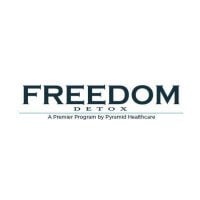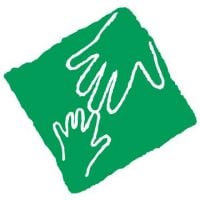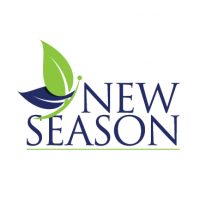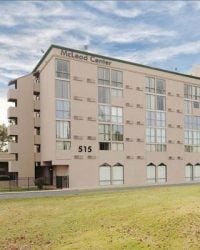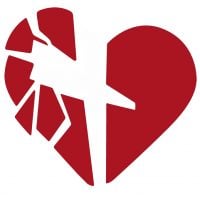
Turning Point Behavioral Health Group
Drug Rehab Center in Gastonia, North Carolina
- Opioid Addiction
- Dual Diagnosis
- Drug Addiction
- Alcoholism
Turning Point Behavioral Health Group offers individualized mental health and substance abuse treatment through evidence-based treatments, education, and aftercare services in a Joint Commission accredited facility with experienced and caring staff.
Multiple patients have reported Turning Point Behavioral Health Group as permanently closed.
Research other rehabs in Gastonia, North Carolina, or get help finding an open facility.
Our experts will find you an alternative facility.
(888) 674-0062 24/7 Free, Confidential, Expert HotlineAbout This North Carolina Facility
Turning Point Behavioral Health Group is a private mental health and substance abuse treatment facility located in Gastonia, North Carolina. They offer a wide range of services for individuals in need of mental health and addiction treatment and are dedicated to providing individualized, high-quality care for each of their clients. Turning Point Behavior Health Group's experienced and caring staff provides a variety of treatments to help clients conquer their mental health issues and substance abuse problems.
Turning Point Behavioral Health Group provides a range of evidence-based treatments that are tailored to each individual's needs and are designed to help individuals address the underlying issues that may have caused or exacerbated their mental health and addiction issues. This includes therapy, counseling, and psychotherapy, as well as medication-assisted treatment, holistic therapies, and other alternative treatments. They also provide education on addiction and relapse prevention, as well as aftercare services.
Turning Point Behavioral Health Group is a Joint Commission accredited facility, and they are fully licensed to provide treatment in the state of North Carolina. They have been recognized for the quality of care that they provide by the North Carolina Department of Health and Human Services, and they have earned the Joint Commission’s Gold Seal of Approval. Additionally, Turning Point Behavioral Health Group offers a wide range of recovery activities to help their clients develop lifelong coping skills that can positively impact their lives.
Genders
Ages
Modality
Additional
Conditions and Issues Treated
Opioid abuse has become a national epidemic in the last decade. The US has one of the world’s highest rates of opioid use and abuse, as well as opioid-related deaths. Opioids are classified as Schedule II-IV controlled substances in the US due to their high potential for abuse.
Oxycodone, hydrocodone, methadone, and fentanyl are the most common Opioids and are commonly prescribed to treat pain. Tolerance to opioids develops over time, making life difficult, if not impossible, without them. Opioid users often obtain the drugs illegally. They can be drug dealers, friends, or family members who do not have valid prescriptions.
The desire for a more intense high than prescription opioids can quickly lead to heroin use. Heroin users are more prone to illness and death due to the high risk of overdose.
Many opioid addicts who seek treatment believe that the only way to overcome their addiction is through medical detox and long-term drug addiction rehab. To help patients wean off their addiction and reduce the risk of overdose, medication-assisted therapy (MAT) involves prescribing a replacement opioid. Doctors use MAT in conjunction with other anti-craving medications to help patients maintain recovery. Due to the high risk of relapse, MAT is often combined with individual and group counseling and social support programs.
When addiction and psychiatric issues co-occur, the addict’s recovery is more successful when both conditions are treated. A dual diagnosis refers to a condition in which the patient is diagnosed with two health issues: addiction and bipolar disorder. The most common therapies are psychotherapy, behavioral therapy, spiritual counseling, 12-step programs, and medication management.
Levels of Care Offered at Turning Point Behavioral Health Group
This center offers a variety of custom treatment tailored to individual recovery. Currently available are Drug Rehab, Dual-Diagnosis, Outpatient, with additional therapies available as listed below.
An outpatient treatment program is set up to help with alcohol or drug addiction or a co-occurring disorder. The patient must attend the facility for their therapy and other programs but can return home each night.
The frequency of mandatory attendance decreases after much of Turning Point Behavioral Health Group‘s program is complete.
Outpatient treatment is a recovery approach that allows recovering addicts to live at home while getting rehab for addiction
An outpatient can include day treatments which include attending group sessions one hour per week. A person living in an outpatient environment may be allowed the opportunity to work full time if they choose to and continue studies without interruption from drugs/alcohol.
Outpatient treatment is an option for people who want to maintain their careers and families. Outpatients live at home but attend treatment such as individual counseling, group counseling, or twelve-step meetings during the day.
Therapies & Programs
Family therapy is a crucial part of drug treatment and getting sober. It is one of the most effective ways to help addicts stay on the path to long-term sobriety. An addict’s family can play a vital part in helping them to avoid relapse. They can spot the warning signs and help them get back on track.
In group therapy, recovering addicts meet with a therapist and other people in recovery. Some groups are closed, meaning only people who share the same addiction or problem can attend. Others are open to anyone who wants to stop using drugs or drinking alcohol. Group therapy sessions typically focus on one topic each week or month so that recovering addicts can discuss issues they face daily.
Trauma therapy allows people to face and learn from past traumas.
Many people suffer childhood traumas that lead to adult addiction. During treatment at Turning Point Behavioral Health Group [/type], you can move forward in your recovery and reclaim your sober future! Trauma is a common cause of psychological disorders like Addiction Disorder. It’s common in Addictive Disorders patients because traumatized people have strong emotions or thoughts that lead to addictive behaviors.
Payment Options Accepted
For specific insurance or payment methods please contact us.
Is your insurance accepted?
Ask an expert, call (888) 674-0062
Additional Details
Specifics, location, and helpful extra information.
Gastonia, North Carolina 28054 Phone Number(704) 854-9854 Meta DetailsUpdated November 25, 2023
Staff Verified
Patient Reviews
There are no reviews yet. Be the first one to write one.
Gastonia, North Carolina Addiction Information
North Carolina ranks 29th in the nation for overall substance abuse. Many of the drugs abused in the state are illicit, and many of these are opioids. Prescription opioids are readily available due to the high rates of medical workers prescribing them. The number of prescriptions has increased tenfold since the 1980's. Opioid overdoses are the most common type of death in North Carolina.
The rate of drug overdose deaths in Gaston County increased by 33% between 2016 and 2017. Most of the overdose deaths (60%, or 45 out of 74) were attributed to opioids. Businesses are affected by addiction, too. Employees may use drugs or alcohol on the job, leading to accidents, errors, and absenteeism. Treatment centers can help people recover from addiction. If you are struggling with addiction, please reach out for help.
Treatment in Nearby Cities
- Albemarle, NC (55.2 mi.)
- Spring Lake, NC (124.2 mi.)
- Elizabethtown, NC (151.4 mi.)
- Pineville, NC (19.2 mi.)
- Midway Park, NC (219.8 mi.)
Centers near Turning Point Behavioral Health Group


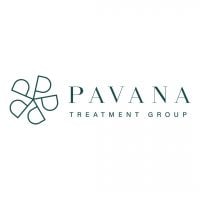
The facility name, logo and brand are the property and registered trademarks of Turning Point Behavioral Health Group, and are being used for identification and informational purposes only. Use of these names, logos and brands shall not imply endorsement. RehabNow.org is not affiliated with or sponsored by Turning Point Behavioral Health Group.

